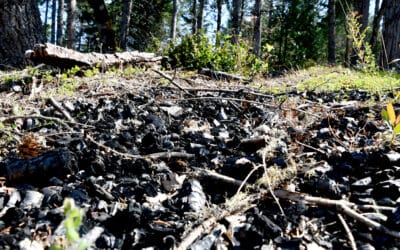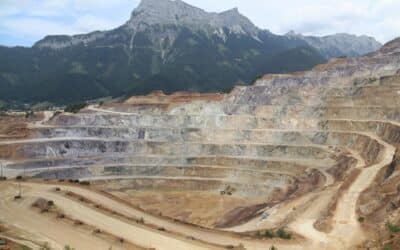Paris Agreement Article 6 is designed to allow Parties to engage in cooperative activities “to allow for higher ambition.” The Supervisory Body for the 6.4 mechanism – the successor to the Clean Development Mechanism – has been tasked to bring forward a set of workable rules governing much of the international trade in ‘mitigation obligations’. Worryingly, it has been requested to develop recommendations on methodologies for ‘carbon removals’ in the carbon markets to the CMA ahead of its fourth session in November 2022 and that is just what it did. On the final night before the opening of COP27, the Supervisory Body adopted a set of recommendations for activities involving removals including a broad definition of removals that would open the door to a wide-range of dangerous options and caveats language on human rights including the rights of Indigenous Peoples by leaving it to national prerogatives. The proceedings, which are designed to have interactions with observers, ultimately did not allow for any observer interventions as they had insufficient time. The use of Article 6.4 land- and engineering-based ‘activities’ for offsetting purposes is simply not compatible with the 1.5°C pathways necessitating deep decarbonization in all sectors.
Past experience of market-based activities, including under the Clean Development Mechanism, includes numerous projects that have undermined human rights and harmed communities and their environment. To date, carbon markets have been proven inadequate mechanisms to increase ambition or any meaningful climate action as offsets do not reduce emissions. When actors rely on offsets rather than reducing their emissions at source, global emissions continue to rise, leading to more global warming.
The documents prepared by the UNFCCC Secretariat for the Article 6.4 Supervisory Body include the broadest possible definition of ‘activities’ to be considered under a new market mechanism, proposing use of both land and geoengineering approaches for ‘removals’. The document ultimately adopted by the Supervisory Body to go forward to the CMA includes a sweeping definition and does not distinguish between types of removals (including each activity’s requirements, risks and implications), but instead leaving the door open to them all.
Land-based offsets are inappropriate for use in such a crediting mechanism for three main reasons. First, ecosystem removals are reversible (not permanent) with likelihood of leakage further exacerbated as climate change leads to e.g. more wildfires. Second, the land requirements for use in offset mechanisms – that is, the use of land primarily or even exclusively for carbon dioxide removal – are vast for such measures to have any notable impact on global warming. These lands are not ‘empty’; land removals would primarily target the customary lands of Indigenous Peoples, peasant farmers and local communities, whose rights must be respected. Third, the focus on mitigation at the expense of adaptation will lead to perverse outcomes with respect to biodiversity conservation and community resilience.
Under consideration is an information note on carbon removals by the Supervisory Board, which includes geoengineering technologies such as BECCS, DACCS, Enhanced Rock Weathering/Ocean Alkalinisation and Ocean Fertilization. Acting on the precautionary principle, the UN CBD agreed on a moratorium on all climate-related geoengineering in 2010. The London Convention/London Protocol (LC/LP) has called for extreme precaution since 2008 and is currently evaluating several marine geoengineering technologies, having already agreed to prohibit ocean fertilization.
All land- and ocean-based CDR technologies require vast amounts of energy, land, biomass, water, minerals and/or other resources and come with severe risks and large-scale side-effects for ecosystems, communities and the climate. The (AR6) IPCC’s WG I & II reports recognize carbon dioxide removal (CDR) not only may fail to meet its climate objectives, but also may introduce significant risks and unintended consequences for human and natural systems, exacerbating the impacts of warming and undermining adaptation.
The Article 6.4 mechanism should be designed to facilitate increased ambition, focused to incentivize and support the enhanced reduction of emissions, urgently needed in the near-term. In a context in which countries have done nowhere near enough to address the principal drivers of climate change – fossil fuel production and deforestation – and the cumulative emissions reductions plans put forward in Nationally Determined Contributions (NDCs) are far from sufficient to keep global temperature rise below 1.5°C – the sole focus must be on cutting emissions at source. Focusing on potential “carbon removals” sometime in the future is a dangerous distraction that risks easing the pressure for urgently needed action to curb emissions now. It also gives the false impression that the world can return from “temperature overshoot” by removing CO2 from the atmosphere. The IPCC has clearly warned about the serious dangers of such a strategy, which will result in irreversible damage and impacts on communities and ecosystems, and which might prove impossible altogether due to tipping points and feedbacks in the climate system. Furthermore, the urgency of the climate crisis can not justify eliminating the need for precaution in matters related to human rights and the environment.
We urgently call on the CMA under the UNFCCC to:
- Reject the current Recommendations from the 6.4 Supervisory Body on “removals.” These are dangerous, done in haste, and without necessary consultation.
- Any new recommendations to be developed should:
- Firmly ensure agricultural soils can not be included in carbon markets
- Firmly ensure BECCS, DAC, CCS, CCUS or any other marine or land-based geoengineering proposals are excluded from Article 6.4 as well as any other articles of the Paris Agreement
- Uphold and respect moratoriums, regulations and frameworks under the CBD and the London Convention/London Protocol
- Recognize and fully respect human rights including the rights of Indigenous Peoples, peasants and other people working in rural areas, and local communities, including Indigenous Peoples’ right to Free, Prior and Informed Consent (FPIC)
Signed,
Hands Off Mother Earth Alliance

Hands Off Mother Earth (HOME) is an alliance of 200+ civil society organizations, climate justice movements and Indigenous Peoples in 45 countries opposing geoengineering as a dangerous, unnecessary and unjust proposal to tackle the climate crisis.
https://handsoffmotherearth.org/
Contact: coodinator@handsoffmotherearth.org
Background Resources
- COP27: What’s at stake regarding false solutions?
Friends of the Earth International, November 2022 https://www.foei.org/publication/cop27-briefing-false-climate-solutions/ - COP27: A Turning Point for Climate and Human Rights
Heinrich Boell Foundation and Centre for International Environmental Law, November 2022 https://www.boell.de/en/2022/11/01/cop27-turning-point-climate-and-human-rights - False Solutions Alert: Geoengineering in the Climate Negotiations
Action Group on Erosion, Technology and Concentration, November 2022 https://etcgroup.org/content/false-solutions-alert-geoengineering-climate-negotiations - Fossil Futures Built on a House of Cards
Friends of the Earth International, June 2022 https://www.foei.org/publication/fossil-futures-built-on-a-house-of-cards/ - Chasing Carbon Unicorns: The deception of carbon markets and “net zero”
Friends of the Earth International, April 2021 https://www.foei.org/publication/chasing-unicorns-carbon-markets-net-zero/ - The Land Gap Report
Dooley K., Keith H., Larson A., Catacora-Vargas G., Carton W., Christiansen K.L., Enokenwa Baa O., Frechette A., Hugh S., Ivetic N., Lim L.C., Lund J.F., Luqman M., Mackey B., Monterroso I., Ojha H., Perfecto I., Riamit K., Robiou du Pont Y., Young V; November 2022 https://www.landgap.org - Beyond the Limits: New IPCC Working Group II Report Highlights How Gambling on Overshoot is Pushing the Planet Past a Point of No Return,
Centre for International Environmental Law and Heinrich Boell Foundation, February 2022 https://www.ciel.org/reports/ipcc-wg2-briefing/ - IPCC Unsummarized: Unmasking Clear Warnings on Overshoot, Techno-fixes, and the Urgency of Climate Justice
Centre for International Environmental Law and Heinrich Boell Foundation, April 2022 https://www.ciel.org/reports/ipcc-wg3-briefing/



